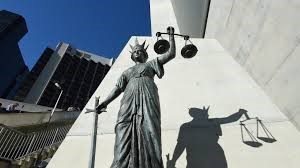Well the world has been turned upside down in the last couple of months and everyone has had to very quickly learn to adapt to changes in their personal, social and work lives. We are so fortunate in Australia to have avoided the sad and tragic circumstances that we are seeing overseas. Our prayers and thoughts go out to the family and friends of the victims of this wicked virus. The year 2020 will most certainly be remembered and recorded in the history books as a very dark year indeed. Working through this Covid-19 Era has thrown up so many challenges for business and practice alike. Simply doing business is challenging in itself, but doing it successfully is a whole other ball game.
Events unfolded very quickly in March 2020. On Wednesday 8th March the first rumblings were heard amongst the legal fraternity in Queensland when Practice Direction 2 of 2020 was issued by the Chief Magistrate. Three days later the World Health Organisation (WHO) officially declared the virus a pandemic. Public safety quickly consumed and dominated the media cycle. On Friday 27th March 2020 a blow was struck amongst practitioners as a result of the release of Practice Direction 3 of 2020.
Whilst the direction was necessary, it effectively stopped most of the practitioners work in the Magistrates Court, effectively putting a halt on income. Most firms have high overheads just to keep the doors open, and much sleep was lost over the following days trying to navigate a way through these uncharted waters. Thankfully the Federal Government announced the JobKeeper program which meant that large numbers of people didn’t lose their jobs. In early April the practice Directions were amended allowing a lot more work to be done in the Magistrates Court. The court is now utilising technology to allow practitioners and clients to ‘appear’ remotely.
So, how are practitioners practically dealing with the strange new practice of appearing remotely in court?
Traditionally, a Criminal Lawyer will have a face to face initial consult with their client in their office, mapping out the path to deal with the police charge. These meetings are so important and allow the practitioner the opportunity to assess the capacity of the client, their actual understanding of the matter, and develop an insight into the client so that comprehensive instructions can be obtained. There will of course usually be preliminary court appearances and adjournments requiring the Solicitor to appear in court with or without their client. There will typically be subsequent face to face conferences with their client, and then the final court appearance in court at either a sentence or a trial.
On all of these occasions the lawyer will be in their traditional ‘uniform’ donned in a suit and their polished shoes. They look and act the part and display a professional persona which instils confidence in the client. The art of advocacy is a refined skill and the reading of subtle cues from the bench often defines the way in which the submission is delivered. There is so much more to communication other than just the spoken word.
With the recent Covid changes, the practitioner does not have the benefit of these interpersonal experiences which is so important in the work that we do. Times have clearly changed with the introduction of the Courts Practice Directions together with Social Distancing necessities, and we as practitioners must adapt. Many lawyers are now not meeting clients face to face and are obtaining instructions electronically (via the telephone or on videolink platforms such as Skype or Zoom). Court matters are conducted remotely with the client and Solicitor separately telephoning the court to appear remotely. The Solicitor is probably conducting the appearance in their home office or at their kitchen table, and probably in a T-shirt and shorts – and certainly not in their polished shoes. The client loses that psychological benefit of having a confident and well dressed lawyer standing next to them in court.
A plea of guilty is conducted remotely with all of the prosecution and defence material exchanged and provided to the court in advance of the appearance. Submissions are made over the telephone, with the practitioner often having an image in their mind of appearing physically in court – just to maintain their sense of perspective and reality. Those subtle cues are absent and sometimes replaced with pregnant pauses from all parties over the telephone.
But if conducted correctly, the substance and persuasiveness of the plea is not lost, and there is no nett detriment to the client. The technology clearly exists to allow for electronic appearances, it is working now, but will it continue to work post Covid-19? Is it appropriate for it to continue post Covid-19? No doubt there will be developments in the technology which will enhance the procedures. Will virtual appearances become the new norm? Things will return in some way to the way that they were, but how quickly and to what extent – well, only time will tell.
The QLS offer a fantastic support to all members through the Lawcare program which can be accessed through the QLS website. Lifeline also offers emergency support on 131 114. Stay safe and look after each other.
Brooke Winter
Brooke is a Criminal Lawyer on the Gold Coast and manages the practice Brooke Winter Solicitors





